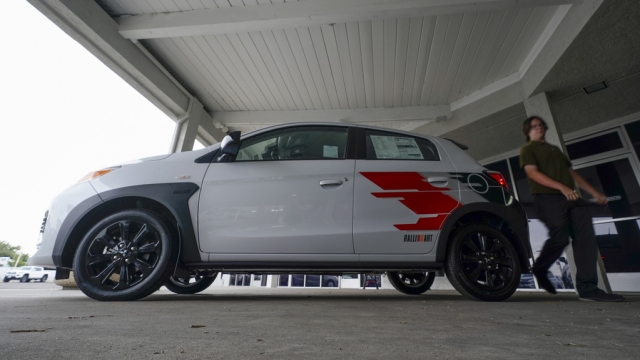Just five years ago, a price-conscious auto shopper in the United States could choose from among a dozen new small cars selling for under $20,000. Now, there’s just one: The Mitsubishi Mirage. And even the Mirage appears headed for the scrap yard.
At a time when Americans increasingly want pricey SUVs and trucks rather than small cars, the Mirage remains the lone new vehicle whose average sale price is under 20 grand — a figure that once marked a kind of unofficial threshold of affordability. With prices for new and used cars having soared since the pandemic, $20,000 is no longer much of a starting point for a new car.
This current version of the Mirage, which first reached U.S. dealerships a decade ago, sold for an average of $19,205 last month, according to data from Cox Automotive. (Though a few other new models have starting prices under $20,000, their actual purchase prices, with options and shipping, exceed that figure.)
The Mirage, with hatchback and sedan versions, costs less than half of what the average U.S. new vehicle does. That average is now just above $48,000 — 25% more than before the pandemic struck three years ago.
SEE MORE: Some popular used cars are no longer affordable to average buyers
The scarcity of small cars at dealerships helps explain why the average new vehicle costs so much: Detroit's Big Three automakers — General Motors, Stellantis and Ford — began to jettison the compact and subcompact car business about five years ago. Low profit margins for small cars and consumers' increasing shift to SUVs and trucks made the decision an easy one. Likewise, Toyota and Honda later halted U.S. sales of their subcompacts.
Then a pandemic-related computer-chip shortage slashed global auto production. Vehicles were suddenly in short supply at a time of high demand. Prices shot up.
Another factor that has swollen average prices is that 32 models in the United States now have selling prices above $100,000, according to Cox. As recently as 2018, only 12 models sold for over 100 grand. At an average sale price of $29,000, even most used vehicles cost more than a new Mirage.
A new Mirage, which costs about the same as a 4-year-old Chevrolet Cruze or Mazda 3, has a five-year, 60,000-mile bumper-to-bumper warranty. But most used cars that age no longer include such warranties. The Mirage gets roughly 39 miles to the gallon, among the highest of any vehicle in the United States that isn't hybrid or electric.
Still, the horsepower in its three-cylinder engine amounts to a tepid 76.
SEE MORE: Report: Gen Z accumulating debt faster than other generations
Despite the low price, U.S. sales of the Mirage have been sluggish. Mitsubishi sold only 5,316 in the first half of the year — 44% below the same period in 2022.
And it might not be available at all in a couple of years. The trade publication Automotive News reported last week that Mitsubishi will stop selling the Mirage by mid-decade. Mitsubishi, part of the Nissan-Renault alliance, declined to comment. But its website says production of the Mirage in Thailand, where it is built, is ending.
Once the Mirage disappears, Mitsubishi's least expensive vehicle would be the Outlander Sport small SUV. It starts around $24,600, which includes shipping.
In addition, Mitsubishi buyers tend to have lower-than-average credit scores, and many of them have been priced out of the auto market entirely because higher loan rates have sent monthly payments surging.
A buyer who put down a 10% payment at the average Mirage sales price of $19,205 would owe roughly $365 each month for 60 months at a 7% loan rate.
The latest data suggests that Mitsubishi's decision to phase out the Mirage might be premature. Overall sales of small cars, after having dropped in seven of the past 10 years, are up 11.7% in the first half of the year. Some of that gain may reflect more interest from consumers concerned about higher gas prices, but most of it represents fleet sales to rental car companies.
Cody Bird is the shop manager for Beach Auto Repair. He says, "I've actually seen an increase in people wanting to get their cars fixed instead of buying new cars."But even that option is costing more according to Chris Brazzeal, the general manager of Brazzeal Automotive."Like everything, inflation has affected prices for parts and labor," he says. "Costs have also gone up to operate. We see a lot of vendors adding in fees for delivery to help them. We're getting fees we've never gotten before."Auto analysts expect car prices to drop slightly as factories produce more vehicles, but a new car for $20,000 may soon be a thing of the past.
Trending stories at Scrippsnews.com



